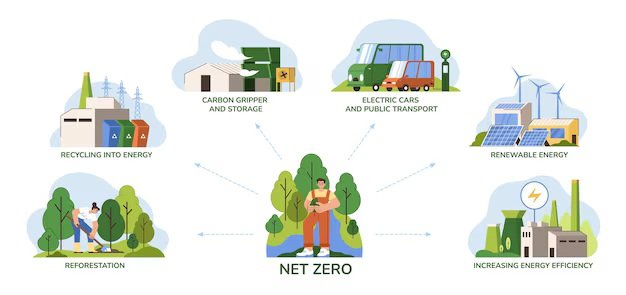What is Greenhushing — and Why it Matters?
Greenhushing is when companies quietly hide, downplay, or stop talking about their environmental work. It’s the opposite of greenwashing (which is loud and misleading). Instead of making big public claims, firms keep progress, targets or even new projects out of the public eye. This can be because they fear legal action, media scrutiny, activist pressure, investor backlash, or simply because they want to avoid messy conversations when progress is slow. According to KPMG, greenhushing is a deliberate refusal to publicise ESG information. A chapter published through Oxford’s professional law series similarly defines greenhushing as the strategic under-communication of sustainability activity.
Why this matters: public reporting and conversation about climate and nature are how civil society, investors and regulators hold companies to account. When firms go silent, it becomes harder to check whether promises turn into action. That reduces transparency, slows investor and customer scrutiny, and can make corporate sustainability efforts weaker rather than stronger.

In This Article
- Evidence that Greenhushing is Growing — Studies and Examples
- How Greenhushing Actually Affects People, Markets and Climate Progress (real harms)
- What to Do — Guidance for Companies, Investors, Journalists and Citizens
- Conclusion
Evidence that Greenhushing is Growing — Studies and Examples
Multiple recent analyses and news investigations show greenhushing is not just a theory. A survey-based Net Zero report by South Pole found that many companies across sectors are intentionally decreasing climate communications — the pattern appeared in nine of 14 sectors they studied. According to the report, the retreat in public messaging has grown since the trend was first noticed in 2022.
PwC’s 2025 State of Decarbonization report also observed that firms are “talking less” about their climate pledges even while many continue to invest in decarbonization behind the scenes. The Economist recently ran a feature describing a rapid rise in greenhushing as companies weigh regulatory risk, litigation and hostile political environments.
There are clear, public examples. Financial firms and big investors — once vocal about ESG and climate engagement — have pulled back certain public claims and reduced visible use of ESG language under political and legal pressure. ClientEarth and other campaigners have explicitly challenged some asset managers for misleading sustainable fund marketing, and reporting shows asset managers changing how they describe environmental work. A report of public complaints and litigation around ESG marketing illustrates the legal risk firms now fear. Journalistic investigations have also documented companies quietly removing or softening climate commitments on websites and in reviews — actions reporters call greenhushing.
At the same time, disclosure platforms show a mixed picture. The CDP (formerly Carbon Disclosure Project) and reporting hubs have recorded a surge in companies choosing to disclose environmental data this year — about a 40–50% increase in some regions — demonstrating that silence is not universal and that many organisations still publish performance data even while others go quiet. A recent CDP summary described greater uptake of disclosure despite a broader “ESG backlash.”
How Greenhushing Actually Affects People, Markets and Climate Progress (real harms)
Greenhushing weakens the checks that normally push firms to improve. When companies stop reporting, investors and regulators have less information to price risk or enforce rules. That raises the chance of stranded assets, under-priced climate risk, and weaker supply-chain controls. Researchers and legal analysts have warned that reduced public transparency increases the difficulty of holding companies accountable for real emissions and environmental impacts.
This is not an abstract threat: communities and customers feel it in concrete ways. InsideClimate News reported cases where local people and NGOs relied on corporate reports to evaluate factory pollution, land use and community restoration. When those reports disappear or are curtailed, local groups lose a key source of information and leverage. Likewise, activists and watchdogs who once used public commitments to challenge corporate behaviour now find fewer levers to act on — slowing campaigns that can lead to cleaner local air, safer workplaces and restored ecosystems. The legal landscape matters too: the rise in suits over greenwashing has made firms nervous about public claims, driving them into silence rather than clarity.
Real company and executive experiences show the tension. Michael Okoroafor, Chief Sustainability Officer at McCormick, has spoken publicly about the challenge of staying committed while avoiding misleading claims; his remarks at industry events reflect a dilemma many sustainability leads now face — keep quiet and protect the organisation, or speak up and risk litigation or political backlash. Renat Heuberger, CEO of South Pole, has explained in interviews that fear of backlash is a major driver of silence, especially when the political climate polarises sustainability language.
Here is a short table that captures the most cited, measurable trends from recent reports — the numbers below come from the named studies and reporting above:
| Finding | Source and year |
|---|---|
| Many sectors show intentional reduction in climate communications (observed in 9 of 14 sectors) | A report by South Pole, 2024. |
| Increase in companies using formal disclosure channels this year (~40–50% growth in some regions) | According to CDP reporting summaries and related coverage, 2025. |
| Companies publicly “talking less” about pledges while continuing investment behind the scenes | PwC State of Decarbonization report, 2025. |
What to Do — Guidance for Companies, Investors, Journalists and Citizens
Companies that genuinely want to help the planet should aim for transparent communication, not silence or spin. Reporting only what looks perfect and hiding the rest creates distrust; hiding everything creates opacity. Start by setting public targets that are backed by clear methods and milestones, and publish the data you can verify. Where progress is slow or setbacks happen, explain them plainly and show remedial plans. A best practice is to use independent disclosure platforms (for example, CDP or verified sustainability standards) so third parties can assess claims. According to recent reporting, increased use of independent disclosure platforms improves comparability and confidence in corporate data.
Investors should ask for consistent, audited disclosures as a condition of engagement rather than relying only on glossy pledges. When firms are silent, investors can insist on material climate and nature metrics through shareholder resolutions, private engagement or by favouring managers who demand transparency. Research and legal briefs warn that both under- and over-communication have costs; the right response is consistent, verifiable disclosure.
Journalists and civil society should keep detailed watchlists — not to shame companies unfairly, but to ensure that progress (or lack of it) is visible. Investigative reporting has shown that public scrutiny forces companies to clarify or improve their claims; when scrutiny disappears, so does incentive. InsideClimate News and other outlets that have documented greenhushing stress the need for continued reporting even as public-facing corporate language shifts.
For citizens and customers: demand evidence, not slogans. Ask brands for measurable outcomes: how much did emissions fall last year? Which suppliers were audited? How much was invested in low-carbon projects? Use independent disclosure databases where possible. The mix of growing CDP disclosures alongside pockets of silence means consumers who ask for data can still make informed choices — and their questions matter.
Finally, regulators and standards bodies should continue to tighten rules about environmental claims while making clear safe pathways for companies to report progress without unreasonable legal exposure for honest statements. The rising volume of greenwashing complaints has created a chilling effect; smart policy will reduce the incentives to hide information by clarifying what counts as lawful, substantiated disclosure. Recent regulatory moves on labelling and fund names in financial markets show how policy can reshape corporate language — and why companies fear getting it wrong.
Conclusion
Greenhushing is a sign of an awkward moment: sustainability matters more than ever, but political fights and tougher legal scrutiny have companies rethinking how much they say publicly. Hiding progress does not make the climate or local communities better off. Real change needs both action and honest communication: publish what you can prove, explain what you cannot, and let independent disclosure and civil scrutiny sharpen the rest. If companies, investors, journalists and citizens follow that simple rule, we get less spin, more accountability, and a better chance of turning pledges into results.







